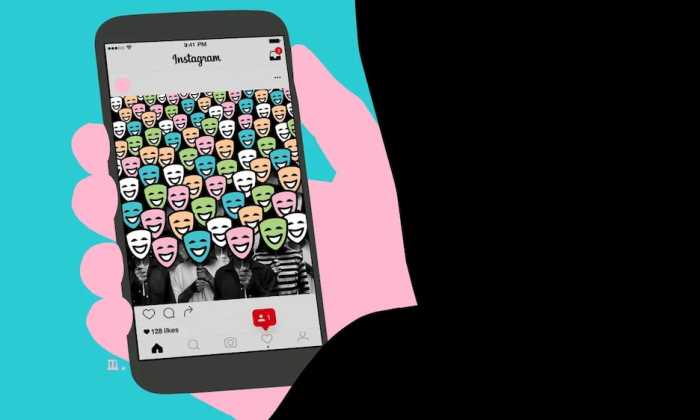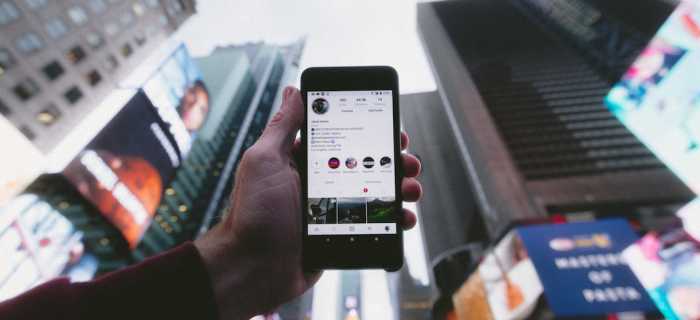The Mystery Behind the Influence of Instagram and The Popular Culture Industry
Instagram has influenced humans and created a mystery around how artists and influencers have managed to sell the popular culture industry to the public. Celebrity fan-based products have created a culture of consumption and distraction with no end. Product placement is widespread in today’s world; social media is an excellent way to connect with people and sell products. However, it is controlled by executives who make decisions on product placement much differently than when television was popular in the past. As a result, many artists/influencers have “sold out” to consumer franchising. Although Instagram has enormously influenced artists and popular culture, this has driven our addiction to the fan-based product industry. How have Instagram and other social media platforms managed to do this to our culture? People have become exceedingly compulsive with social media; as a result, other areas of their lives suffer from trying to be part of a digital world.
Jean Baudrillard’s work, “Simulacra and Simulations,” points out that society has replaced reality with symbols and signs, and we have a perceived fact seen through the symbolism of media and a false culture. Social media platforms such as Instagram have obscured our ‘real’ needs with that of products sold to consumers for profit and commercial gain. Instagram creates a mystery around how our data is tracked through algorithms and what we post every day, whether it’s celebrities selling their fan-based products or just people having fun sharing photos. The impact of social media and the popular culture industry still emphasizes sharing content with other users and communication; however, the influence of platforms like Instagram on artists and industry seems to be connecting one group with another, just as television did in the past.

How Artists and Influencers Brand Their Products
Artists and influencers brand their products to consumers through Instagram; many have used this to grow professional opportunities and make a living. Has this fueled our addiction to the fan-based product industry through social media? The word influence has been around since William Shakespeare’s time from about 1580, meaning “exertion of unseen influence by persons” (Scott 2019). The word appears in a quarter of Shakespeare’s plays (Scott 2019). He describes being influenced by a kind of irrational servility. In today’s world, the consumption of fan-based products seems to be over-promoted by artists and celebrities through Instagram while being controlled by executives who make final decisions on product placement. Stars like N.B.A. athletes put their workouts on Instagram, and enthusiastic fans in turn purchase products from well-known sports franchises like Nike and Adidas. Famous athletes usually endorse these brands. A-listers such as Beyonce and Kylie Jenner, to name a few, announce pregnancies and births on Instagram instead of on magazine covers (“How Instagram Rose”).
Many artists and influencers make a living and fund their expenses through Instagram. Cristiano Ronaldo, the most-followed person on social media, is estimated to make more than $40 million annually from Instagram as a professional footballer. He promotes the anti-dandruff haircare brand Clear through Instagram. This is an excellent example of self-branding through social media. While developing their public image and gaining financially, self-branding also encourages the promise of rewards for artists and influencers. “Moreover, there is an implicit assumption that everyone is expected to self-brand in order to realise his or her fullest potential” (Khamis et al. 2017). Platforms like Instagram also promise fame and wealth to ordinary users encouraging the practice of micro-celebrity for anyone that posts on their site. Social media like Instagram create a culture of consumption and distraction for humanity; product placement is a billion-dollar industry with no end in sight.

Stigmas Associated with Product Placement
Stigmas can be associated with much of how product placement is promoted through social media compared to when T.V. and cable were dominant; platforms like Instagram have produced more fake branding and advertisement than ever. Compared to T.V. in the past, social media seems to have sponsored fan-based products on an enormous scale; as a result, many artists/influencers have “sold out” to consumer franchising. Before social media, audiences had no direct access to celebrities except by attending official events such as concerts or meet and greets. Instead, fans could see these artists’ and celebrities’ public image through T.V. appearances, music, and commercials (Wong 2017). Before Instagram, television shows and commercials advertised products to the public as a method of product placement with 30-second clips on T.V. or previews before the movies (“Product Placement”).
As Pfeiffer Law points out, “brands are turning more and more to product placement as a more subtle form of advertising” (“Product Placement”). One of the oldest examples of products advertised in films was the Lever Brothers’ Sunlight Soap, featured in Lumiere cinema back in 1896; this was in Europe when motion pictures first advanced. Another product featured was during the 1930s’ when Proctor & Gamble advertised Oxydol soap powder during daytime dramas; this advertising practice coined the phrase “soap operas.” Both examples mentioned here show how product placement isn’t new; the widespread use of social media today makes it challenging to determine how genuine a product is.
Movies in the past three decades like “E.T.” and “Home Alone” all have similar forms of marketing to the public; this is also a form of product placement. Most of what is marketed and sold to consumers is controlled largely by executives who manipulate how product placement is advertised. However, the FTC (Federal Trade Commission) has helped establish rules and regulations for how product placement is used through representation by artists or influencers and social media. When T.V. and cable were dominant in the past, people spent less time focused on devices like smartphones and were never addicted to social media. As Pfeiffer Law states, “consumers are less likely to be able to differentiate between organic content where an influencer simply happened to have a particular product with them in a photo and branded content where the influencer included a specific product in a photo because they were paid to do so”. Ultimately, this consumer-based economy has fueled our addiction to the fan-based product industry. The practice of self-branding capitalizes on how media is produced and distributed; it preys on a culture that is being overtaken by over-consumption and narcissism.

The Nature of The Product Itself
Although Instagram is widely used for product placement by influencers and celebrities, the nature of the product itself plays a role in this effect. Are artists and influencers automatically “selling out” when they get sponsored? Most people today live a daily “grind” of working long hours and being mentally stressed. Our obsession with pop culture and consumer products keeps us constantly tuned to an online world of images and appearances. The media and online content are incredibly prevalent in today’s society compared to the past when T.V. and cable were the primary sources of entertainment. Within the last century, fame and the promise of wealth advertised through celebrity tycoons have given rise to an overaccumulation of buying cheap manufactured goods to increase economic gain. The rise of corporate capitalism has given way to an integrated spectacle where the economy controls the state. As Guy Debord states in “The Society of the Spectacle,”
Imprisoned in a flattened universe bounded by the screen of the spectacle that has enthralled him, the spectator knows no one but the fictitious speakers who subject him to a one-way monologue about their commodities and the politics of their commodities. The spectacle as a whole serve as his looking glass. What he sees there are dramatizations of illusory escapes from a universal autism. The spectacle’s estrangement from the acting subject is expressed by the fact that the individual’s gestures are no longer his own; they are the gestures of someone else who represents them to him.
Our whole society has strayed away from familial ties; our slogan has become, “work harder, buy more.” Social media has harmed autonomy, resulting in more control over society, like our data, spending habits, and contemporary life. Social media encourages and promises fame to ordinary people who use their platforms; as Khamis states, “Within a political culture of neoliberal individualism, self-branding is encouraged with the promise of reward” (Khamis 2017). One of the most famous food bloggers is 36-year-old Vani Hari, the Food Babe. She established her signature label on social media and had over 46 000 followers on Instagram in June 2015. This is an example of a micro-celebrity using social media platforms through self-branding. In this case, the nature of her product reveals the truth about packaged and processed foods, thus making big businesses more accountable for their actions. Vani Hari’s fame through social media and subsequent success can be seen through her ‘approved’ signature brand and product.
But does promoting an ecological cause on social media vs. promoting, for example, a mobile phone play a role like the product? Influencers such as Selena Gomez have been among the most popular Instagram influencers in the music industry. Recently, she had over 400 million followers on Instagram and Facebook; she has worked with many major brands such as Adidas NEO, Pantene, and Coca-Cola. In addition, her estimated cost in 2018 was $800,000 per post, making her an enormous product placement influencer on Instagram. Selena has learned the art of good product placement, but does selling products means she is “selling out” by being sponsored by these large companies?
Instagram is more about hidden advertisements directed at users to boost sales than just self-branding. Artists and influencers on Instagram continue to grow their profiles while creating a culture of consumption and distraction; it is almost certain that influential executives and corporations are trying to influence the population behind the scenes. Product placement has become more global, and our addiction to material things only increases the global advancement of consumer capitalism. Ecological issues and the importance of democracy in society give way to commercial gain and cultural capital.

Hope For Humanity in a Digital World
Instagram has influenced not only artists and celebrities but social media users and fans of products being marketed and distributed to consumers. There are more fan-based products on the market than ever before; we live in a society that consumes and disposes of commodities generated by corporations who make decisions on product placement with no end in sight. A challenge to humanity would be to see through the capitalization of democracy and media production and become more discriminating about how we reward ourselves through self-branding. The FTC should create a more forceful structure for product placement while making social media platforms like Instagram accountable for how they market their content to users. As Jaron Lanier states, “Our willingness to suffer for the sake of the perception of freedom is remarkable” (Lanier 2010). – Let’s hope we can all see through the illusion of fame and fortune so prevalent in our world.
Works cited
Astral Codex Ten. “Your Book Review: The Society Of The Spectacle” AstralCodexTen.substack.com, 22 Jul., https://astralcodexten.substack.com/p/your-book-review-the-society-of-the?utm_source=substack&utm_medium=email
Danier, Victor. “How Instagram Rose Into a Cultural Powerhouse.” The New York Times, The New York Times, 25 Sept. 2018, https://www.nytimes.com/2018/09/25/technology/instagram-celebrities-cultural-powerhouse.html
Dean Hund, Emily, “The Influencer Industry: Constructing And Commodifying Authenticity On Social Media” (2019). Publicly Accessible Penn Dissertations. 3636.
https://repository.upenn.edu/edissertations/3636
Fossen, Beth L. “The science of product placements – and why some work better than others.” The Conversation, 8 Sept. 2021, https://theconversation.com/the-science-of-product-placements-and-why-some-work-better-than-others-165435
Goodreads. “Jaron Lanier Quotes.” GOODREADS.COM, https://www.goodreads.com/author/quotes/3010868.Jaron_Lanier.
Mejia, Zameena. “Kylie Jenner reportedly makes $1 million per paid Instagram post—here’s how much other top influencers get”, 31, July, 2018, https://www.cnbc.com/2018/07/31/kylie-jenner-makes-1-million-per-paid-instagram-post-hopper-hq-says.html.
Morgan, Tiernan, Purje, Lauren. “An Illustrated Guide to Guy Debord’s ‘The Society of the Spectacle’.” Hyperallergic.com, 10 Aug. 2016, https://hyperallergic.com/313435/an-illustrated-guide-to-guy-debords-the-society-of-the-spectacle/
Petre, Caitlin, et al. “‘Gaming the System’: Platform Paternalism and the Politics of Algorithmic Visibility.” Social Media + Society, Oct. 2019, doi:10.1177/2056305119879995.
Pfieffer Law Corp. “Product Placement: Traditional vs. New Media.” Pfeiffer Law, 29 Oct. 2019, https://www.pfeifferlaw.com/entertainment-law-blog/product-placement-traditional-vs-new-media
Tait, Amelia. “How Instagram changed our world.” The Guardian, 3 May. 2020, https://www.theguardian.com/technology/2020/may/03/how-instagram-changed-our-world
Sahebi, Siavosh, Formosa, Paul. “Social Media and its Negative Impacts on Autonomy.” LinkSpringer.com, 27 Jul. 2022,
https://link.springer.com/article/10.1007/s13347-022-00567-7
Scott, Laurence. “A History of the Influencer, from Shakespeare to Instagram.” The New Yorker, 21, April 2019, https://www.newyorker.com/culture/annals-of-inquiry/a-history-of-the-influencer-from-shakespeare-to-instagram.
Susie Khamis, Lawrence Ang & Raymond Welling (2017) Self-branding, ‘micro-celebrity’ and the rise of Social Media Influencers, Celebrity Studies, 8:2, 191-208, DOI: 10.1080/19392397.2016.1218292
Sweney, Mark. “Cristiano Ronaldo shoots to top of Instagram rich list.” The Guardian, 30 Jun. 2021,
Thunderfoot. “For Celebrities, Product Placement is All in a Day’s Work.” Thunderfoot.com, 2 Dec. 2016, https://teamthunderfoot.com/ideas/celebrity-product-placement/
Wong, Zoe. “Authentic Self Branding on Social Media and Its Effects on Global Culture Flows: A Case Study of K-Pop Group Superm.” Summit Research Repository, 31 Aug. 2020, https://summit.sfu.ca/item/20763.
What do you think? Leave a comment.











Good opening, how much of Simulacra and simulation did you make it through? Also with the understanding of social media as a sort of hyper reality what do you think the nature of selling out can really mean in this era? To sell out is to betray ones self but if oneself is not themselves is it being betrayed?
How about this. Rather than paying attention to influencers on Instagram, get outside. Go shopping and buy what you like.
I’m only mid 30s but Instagram and all this influencing stuff makes me feel so out of date.
Well if anyone does not yet understand how social media companies generate their vast incomes they are idiots. I cannot understand why anyone wants to look at other people’s photographs for inspiration. Life is too short to live your life through other people.
Mass narcissism. It’s not going well is it?
It’s no different than ever before, people are just as narcissistic as they ever were, we can just see it more clearly now. Including the narcissism of those always seeking to declare themselves above such things.
Being over 50 I see more narcissism now than in the past. And promoting products this way would have been considered incredibly gauche, desperate, and pathetic during say, the 80s/early 90s. These people would have been dismissively called “sell-outs”, not true to themselves.
I disagree entirely. People have never been under such constant scrutiny from their peers as they are now. Nor have the never been constantly bombarded with advertising, designed to make them feel inadequate, as they are now. It much be hellish for teens and young adults.
Just like at the terrifying rise in teenage suicides. There IS a big difference now, and dismissing the problem off they way you have is extremely destructive.
Social media has great potential for the young to help turn the world we (and our parents) fucked up for you, in the right direction.
But instead Facebook, Instagram and most of the rest of the platforms are being turned into the toxic new capitalist frontier of individualistic greed and self-maximisation fuelled by deliberately engineered insecurity. Just like the traditional TV advertising industry was for our generation.
The very same kinds of people who perverted capitalism and democracy to build their own wealth and power are busily enclosing and subverting the new commons before the next generation has a chance to turn it against them.
Get off your arses, demand that your social media platform does what you say not the other way around and stop mindlessly staring, swiping, skim reading, posting rubbish, buying crap you don’t need and handing over your data wholesale without realising who is really benefitting from the ‘deal’.
I think society would’ve been better off had none of this been invented.
There are a million things that would have been better off never invented, but that’s just wishful thinking – the important thing is to embrace the postive aspects in a responsible manner.
Society would be better off with platforms like Facebook if it weren’t purely driven by profit/greed, and the need to control people. The problem is always the person who controls the platform and how they are influenced.
Social media will change the world for the better? Yeah right. Worse if anything.
I think the internet is fantastic but it can be used for dumbing down rather than elevating. Instead of helping us to know more it seems some are using it to know less.
Been listening to a podcast today talking about Rousseau’s theory of the social contract. Basically that the individuals “consent” for their freedom to be subsumed to “the state” on the understanding the state represents the will of the people and it is generally a nicer life than the one they would have with the personal freedom they have surrendered.
I kind of feel social media is analogous. We have given up a bit of individuality for convenience, but people are not necessarily aware they have consented to all the implications of it.
It’s already too late. Social media has done it for us.
Never too late.
Ever since social media gained a foothold there has been Brexit, Trump, and no Labour governments.
Coincidence? Possibly…
I’ve been thinking similar, they’re the cults of the easy answers and the easy answer is much easier to convey on Social Media.
180 characters is just enough to blame it on the immigrants.
The left won neither the cultural nor economic war.
What happened was that left wing parties were taken over by third way social democrats, who seemed to be the only ones with any new ideas. People were content for them to be in charge, for as long as living standards were clearly improving.
Along the way they implemented a progressive social agenda, but they never fought elections on identity issues nor particularly debated them. People just accepted it as a price to pay for the apparent economic miracle.
The debates on social media today are really ones that should have been had at the time (eg Human Rights Act, the Equality Act, or Gender Recognition Act). Perhaps the first genuinely online debate was the same sex marriage act, and it’s notably one of the few issues you see anyone drag up now.
We need an alternative to Instagram, a platform that we pay to use so we are not ‘the product’. And it should be run by a non-profit organisation. Transparently. Any takers?
Isn’t it just called “The rest of the Internet”.
I don’t use Facebook or Instagram because there is no need to use it. Anything you can do on Facebook, I can do it elsewhere : sharing photos, keeping contact with distant people, chatting, etc … I don’t need all of that to be in one place.
The social media companies just do anything for profit and care little for the impacts on society. We need social scientists to propose new legislation surrounding SM that addresses the imbalance otherwise there will be a bleak future for us all. Traditional society built through evolution is likely to collapse.
We just need to ban all political advertising online. You can’t do it on TV, in Press or on Radio outside of very controlled limits. Chocolate bars and soap sales are fanatically regulated as regards the claims they make. Politicial ads are not even subject to any regulation.
Our Government doesn’t even try to deal with it.
I don’t do social media myself and only read news online. I don’t mind what others do but what does annoy me is people blaming social media for pressuring them or making them feel bad about themselves… don’t fucking post selfies of yourself then and take some responsibility for what you do. Too much blame game. Just opt out you of your narcissist self.. who cares about your trout pout, other than you? Black mirror nailed it.
Influencer is another word for con artist.
Your comment is attempting to influence people.
All opinion is an attempt to influence, the problem isn’t the “con” but whether the snake oil has any real worth. Since the beginning of advertising “celebrity” has been paid to endorse brands, I don’t think anyone really believed that they bought the product.
It’s not subtle, everyone knows it’s phony, and yet still people participate. Idiots.
If you fall into one of the high risk categories (eg teenager, gullible or both) and suddenly feel unwell and overheated with an overwhelming urge to buy the snake oil “cure” some sleb claims to use, be warned that the only influencer cure is a fortnight in bed well out of reach of your phone and credit cards.
Why do people care what celebrities or influencers do or buy or promote or whatever?
One way to make clear if something is an ad is have Instagram, Facebook, Twitter, etc have a button for paid adverts. If a user is being paid to promote a product, they simply click the button for that post, and a clear banner appears across (say the corner, or top) of the post making clear it’s a paid ad. That way no hash tags can be lost amongst the others. Impose hefty fines to celebs/influencers that fail to do so.
Don’t take part – as on Facebook, Twitter etc etc etc. Someone is getting rich on your naivety.
This is why I had considered and then disregarded Instagram for photography. I stuck to Flickr.
I don’t think it’s sufficient to just berate or mock the people who care enough about what a perceived ‘celeb’ says or does as to be influenced by them. We need to ask ourselves how to get such people out of this situation, and also the deeper question: what has society failed to provide them with that this behaviour compensates for?
Instagram has enabled millions of small businesses to thrive, in countless segments, and at scale. However, the Influencer Market is a law to itself, drenched in BS and deeply non transparent. Ideally one would want to see a massive clampdown on the latter without losing the benefits to the former.
Millennials love watching this stuff, it keeps them informed of fashion trends.
Marketeers love it – so much reach for a fraction of the cost of normal placement.
This was not only eye-opening…it was absolutely mind-boggeling..lol..well.written…
Be your own influencer and don’t rely on narcissistic, clueless, brats to tell you how to live your life.
Yelling at Debord
[or whoever translated him]:
Yes – I am aware that Debord comes from a psychoanalytic and structural[post?] tradition…
And that what he has said about anti-social media…
Beware of anyone who calls himself / herself an influencer.
I can’t even influence my cat.
Instagram will become the new telehealth platform of our future. Why, because it’s visual, it is engaging and the younger generation wants answers they don’t have the skillset or patience for seeking elsewhere.
The new revolving sovereign
Social media should be used as a tool rather than it using you.
I think social media is just as detrimental as it is helpful. It all depends on how much you allow it to control you, we are the users and therefore should consume it with caution – advice to detach and only use it for communication purposes.
social media is more of a pressure-related idea because everything seems to be based on who does what best or what the “ideal” look or way of acting is
Great read.
I love seeing Baudrillard’s work in a conversation about social media. I wish it made a bigger part! Good article nonetheless
Noam Chomsky’s notion of “manufacturing consent” is quite applicable when we ponder the broader implications of Instagram in our society. Instagram manufactures the consent of consumption and normalizes it among its global users. When Justin Bieber posted an exhibitionist image on this platform, many fans and influencers began normalizing exhibitionism. I acknowledge that it is arguable whether Bieber’s 2015 Instagram image can be coined as exhibitionist or not. However, many clout chasers on social media consider these acts as affirming consent for their exhibitionist behaviour. Bieber consciously or unconsciously manufactures them.
While as an immigrant in North America, I see constant exhibitionism on Instagram; I also see another contrasting picture in the South Asian context of this social media platform. While South Asia is the birthplace and the place of growth for many progressive religions, this subcontinent also sees the recent rise of chauvinism mainly because women are surpassing men in almost every career path. I grew up in South Asia, and what I see now popular among many young male Insta-consumers are the religious narratives of hatred against women empowerment constructed by preachers in religious institutions. Many religious preachers on Instagram manufacture a movement of misogynists and incels and affirm narratives that legitimize consent of hating successful women. I have several examples of such narratives in my own native language, which are popular on Instagram. One can find many more with a simple Google search, “incels in South Asia.” And some of these religious preachers are celebrities in the subcontinent.
It is evident that Instagram is unable or does not wish to regulate such exhibitionist or hateful narratives. The author hopes to break free from the illusion of fame and fortune these social media display. However, with such dangerous tactics of manufacturing consents in different dimensions, we can only hope social media improves for the betterment of millennials and Gen Z.
A new form of advertising is the TikTok shop. You can barely scroll without running into a product people want you to buy.
Great read. Thank you for contributing.
The idea that we are expected to self-brand nowadays is especially true for visual artists. Even galleries and dealers use Instagram to discover new artists, relying on their curated image to gauge interest. More and more, our ability to use these tools and effectively brand ourselves plays a crucial role in determining our chances of success as artists. A positive side effect is the additional control artists can have over their careers, but it also demands a broader skill set, requiring artists to focus on much more than their artistic practice.